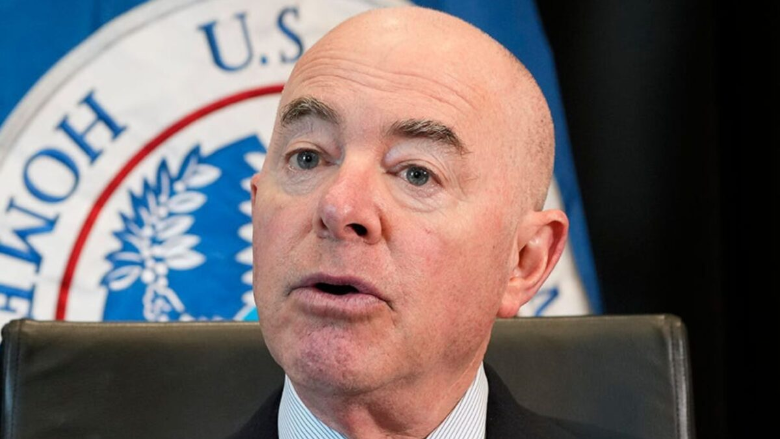The Biden administration is reigniting a fiery debate over racial preferences, this time targeting the admissions practices of military service academies. Despite the Supreme Court’s landmark 2023 decision in SFFA v. Harvard and UNC, which declared racial discrimination in college admissions unconstitutional, the Department of Justice (DOJ) is crafting new arguments to defend these contentious policies. Critics are decrying it as a dangerous precedent and a blatant disregard for constitutional principles.
Eric Thompson Show
In SFFA v. Harvard, the Supreme Court emphatically rejected the idea that the educational benefits of racial diversity could justify admissions practices rooted in racial discrimination. Writing for the majority, Chief Justice John Roberts dismissed such justifications as “imponderable” and incapable of meeting the strict scrutiny required by constitutional law. The ruling was a decisive victory for the principle of equal protection under the law.
Yet the Biden administration is unwilling to let the matter rest. Representing the United States in the Harvard case, Solicitor General Elizabeth Prelogar argued that racial diversity in military academies is critical for national security. Prelogar asserted that a diverse officer corps improves military readiness, unit cohesion, and operational effectiveness—a claim the court rejected for lacking measurable evidence or meaningful ties to the stated goals.
Fast forward to SFFA v. USNA, a case that challenges the constitutionality of racial preferences at the United States Naval Academy. With their prior arguments dismantled in court, the DOJ unveiled a new justification: racial preferences create a diverse officer corps, which, in turn, enhances recruitment, retention, unit cohesion, combat effectiveness, and legitimacy at home and abroad.
This revamped argument, however, relies heavily on recycled narratives about racial tensions during the Vietnam era. Critics argue that these historical anecdotes have little relevance to modern military needs and serve only to obscure the real motivations behind such policies—political preferences rather than military necessity.
In an unexpected turn, U.S. District Judge Richard Bennett upheld the Naval Academy’s racial preferences, accepting the DOJ’s arguments without applying the rigorous strict scrutiny required for such cases. Instead of critically examining whether a specific racial composition genuinely enhances combat lethality or military readiness, the court deferred to military leaders’ endorsements of the policy.
Legal analysts have called this decision a troubling precedent, arguing that it allows ideological and subjective policies to supersede the constitutional guarantees of equal protection. Critics contend that the DOJ’s justification is little more than “creative lawyering,” designed to obscure the political motivations of civilian superiors behind a façade of military necessity.
The Supreme Court’s decision in the Harvard case explicitly warned against the dangers of arbitrary and imprecise racial classifications. Yet, the DOJ’s new arguments in the Naval Academy case appear to repackage the same problematic practices under a different guise.
Many legal experts believe this case is far from over and expect appeals to challenge Judge Bennett’s ruling. Should the Trump administration return to power, it has pledged to end racial preferences in military admissions through executive orders. Such action would likely render the Naval Academy case moot, vacating the lower court’s ruling and potentially halting similar practices at other military institutions like West Point and the Air Force Academy.
Congress could also step in. Lawmakers have floated the idea of codifying a ban on racial preferences in the next National Defense Authorization Act (NDAA), ensuring future administrations cannot revive such policies.
This case highlights a disturbing trend: the manipulation of constitutional principles to fit political agendas. The DOJ’s shifting justifications underscore a willingness to stretch legal arguments to align with ideological goals, regardless of the broader consequences for equal protection and fairness.
The 2023 Supreme Court ruling was a resounding defense of the Constitution’s promise of equal treatment. Yet, the Biden administration’s persistence in finding new ways to justify racial preferences demonstrates that the fight is far from over.
At its core, the Naval Academy case isn’t just about admissions policies; it’s a test of whether constitutional principles can withstand the pressure of ideological expediency. If subjective justifications like “combat effectiveness” and “unit cohesion” are allowed to override strict scrutiny, it could erode the very foundation of equal protection under the law.
The nation now faces a choice: uphold the rule of law or allow rhetoric to dictate governance. Whether through judicial appeals, executive orders, or legislative action, this moment demands a reaffirmation of fairness, equality, and the Constitution’s guarantees.
As this case moves through the courts, its implications will ripple far beyond military admissions. It serves as a reminder that no justification—no matter how cleverly crafted—should override the fundamental promise of equal protection for all Americans. The outcome will shape not only the future of military policy but also the broader fight against racial discrimination in every sector of American life.
For proponents of the rule of law, the stakes couldn’t be higher. This is a pivotal moment to reaffirm that constitutional principles are not negotiable, ensuring the ideals of fairness and equality endure for generations to come.


